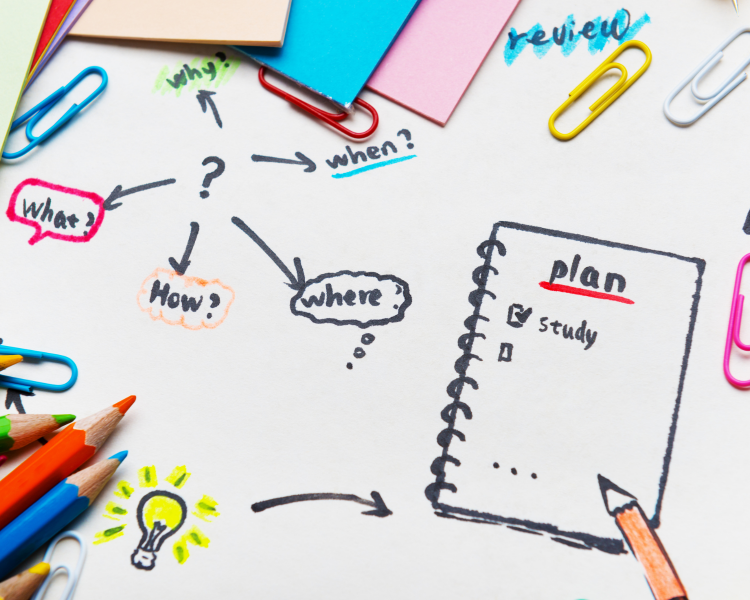Setting the Stage for Fun
How Host Families Can Help Au Pairs Plan Meaningful Activities
Welcoming an au pair into your family is a wonderful way to provide flexible childcare and introduce your children to new perspectives.
A key element of a successful au pair year is ensuring your au pair feels confident and equipped to plan engaging and meaningful activities for your kids.
This blog post offers practical tips for host families on how to set clear expectations and empower their au pair to create enriching experiences for your children.

1. Open Communication and Shared Vision:
- Discuss Your Family’s Values: Before your au pair arrives, or in the initial days, have a conversation about your family’s values and what you hope your children will learn and experience during their childhood. This provides a framework for activity planning.
- Child Development Goals: Share your goals for your children’s development. Are you focused on creativity, outdoor play, language skills, or social-emotional learning? This helps your au pair tailor activities to support these goals.
- Activity Preferences: Discuss your children’s interests, hobbies, and favorite activities. What do they enjoy doing? What are they curious about? This information is invaluable for activity planning.
- Screen Time Limits and Guidelines: Clearly communicate your family’s guidelines regarding screen time. Discuss acceptable types of screen time and any limitations you have in place.
2. Setting Clear Expectations:
- Daily/Weekly Routines: Share your children’s daily and weekly routines, including school schedules, mealtimes, nap times, and extracurricular activities. This will help your au pair understand the structure of the day and plan activities accordingly.
- Activity Planning Responsibilities: Clearly define your au pair’s role in activity planning. Will they be responsible for planning all activities, or will you collaborate together? How far in advance should activities be planned?
- Budget for Activities: Discuss the budget available for activities and any guidelines for spending. This will help your au pair plan within your financial parameters.
- Transportation: Clarify transportation arrangements for activities. Will your au pair be driving the children? If so, ensure they have access to a car and are comfortable with local roads. If not, discuss alternative transportation options.
3. Providing Resources and Support:
- Local Resources: Provide information about local parks, libraries, museums, community centers, and other resources that offer activities for children. A list of websites or brochures can be helpful.
- Activity Ideas: Share a list of activity ideas that you think your children would enjoy. This can serve as a starting point for your au pair’s planning.
- Supplies and Materials: Make sure your au pair has access to necessary supplies and materials for activities, such as art supplies, games, books, or sports equipment.
- Online Resources: Point your au pair to online resources for activity ideas, such as parenting blogs, educational websites, or Pinterest boards.
- Training and Guidance: Offer training and guidance on how to plan and execute activities effectively. This could include demonstrating how to adapt activities for different age groups or how to handle challenging behaviors during activities.
4. Collaboration and Feedback:
- Regular Check-ins: Schedule regular check-ins with your au pair to discuss activity plans and provide feedback. This is also an opportunity for your au pair to ask questions or share any concerns.
- Joint Planning Sessions: Consider having occasional joint planning sessions where you and your au pair can brainstorm activity ideas together. This can be a fun and collaborative process.
- Constructive Feedback: Provide constructive feedback on activity plans and execution. Focus on what your au pair is doing well and offer suggestions for improvement.
5. Empowering Your Au Pair:
- Trust and Autonomy: Give your au pair the trust and autonomy to plan and execute activities independently. This will help them build confidence and develop their skills.
- Encourage Creativity: Encourage your au pair to be creative and think outside the box when planning activities. They may have unique ideas or talents that can enrich your children’s experiences.
- Celebrate Successes: Acknowledge and celebrate your au pair’s successes in planning and executing activities. This will motivate them and reinforce their positive contributions.
By following these tips, you can empower your au pair to create meaningful and engaging experiences for your children. A well-supported au pair who feels confident in their ability to plan activities will contribute to a happy and harmonious household for everyone. It’s a win-win situation!
